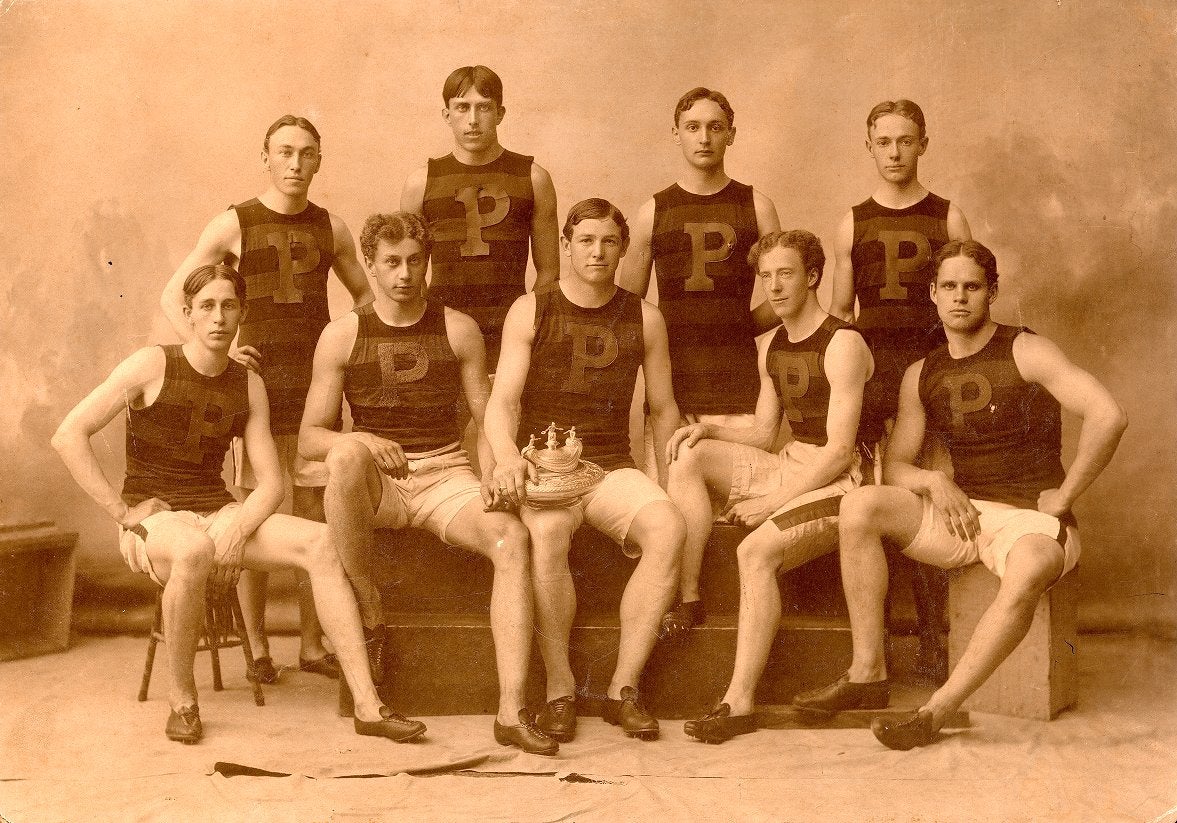John Walter Beardsley Tewksbury was born in Ashley, Pennsylvania, on March 21, 1876, the son of Dr. Anderson and Mary Harper Tewksbury. After attending Wyoming Seminary he enrolled in the University of Pennsylvania Dental School, where he graduated with a D.D.S in 1899.
In 1898, while a student at the University Dental School, Tewksbury won the intercollegiate 100 and 220 yard championships. These accomplishments, however, would be overshadowed by his achievements at the 1900 Olympic Games in Paris. Tewksbury finished those games with gold medals in both the 200 meter dash and the 400 meter hurdles and silver medals in the 60 meter and 100 meter sprints. In addition to these victories, he was also awarded a bronze medal for his effort in the 200 meter hurdles. Tewksbury’s total of five Olympic medals remained the record earned in a single Olympics until late into the 20th century.
After returning from his Olympic victories, Dr. Tewksbury pursued his career as a dentist in Tunkhannock, Pennsylvania, where he practiced for thirty four years. He became one of the town’s most prominent citizens, becoming known as “the man who put Tunkhannock on the map.” Dr. Tewksbury belonged to various Masonic orders, and was a member of Irem Temple, and a charter member and past president of the Tunkhannock Rotary.
In recognition of Tewksbury’s athletic accomplishments, the University of Pennsylvania presented him with a commemorative plaque during a special ceremony at the Penn Relays in 1965. The award was given in conjunction with the University’s observance of its 100th year of intercollegiate sports competition. Shortly before his death on April 24, 1968, he was nominated for the Gibbon Brewing Co., Scrantonian-Tribune Sports Hall of Fame.

